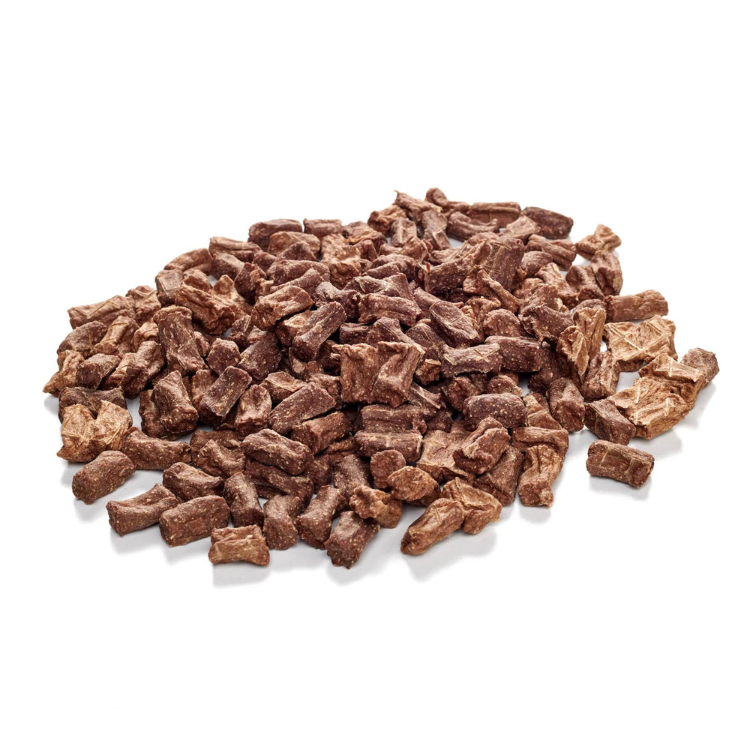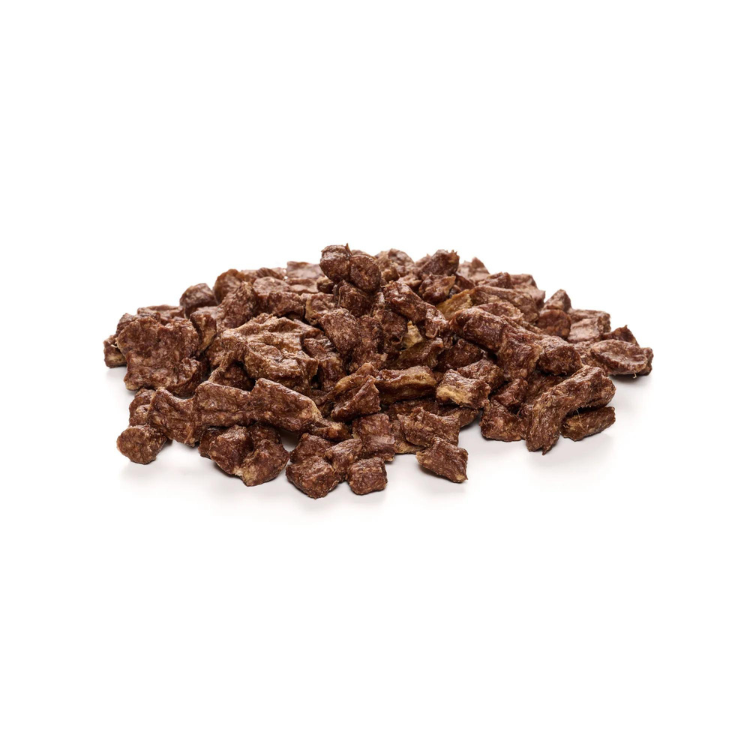
Shepherd dogs - breeds, training and areas of use
Share
The variety of landscapes that herding dogs roam is as wide-ranging as the stories that accompany them. Equipped with a keen mind and unwavering instinct, these hardy dogs have established themselves as indispensable helpers in the livestock industry. From the grassy plains of Europe to the barren plateaus of Central Asia, herding dogs have not only witnessed the evolution of agricultural practices, but have shaped them.
Contents: Shepherd dogs - breeds, training and modern areas of use
- Definition and history
- Breed characteristics
- Main representative
- training
- Areas of application
- Health and care
- Legal and ethical aspects
- Conclusion
Their tasks go far beyond herding and guarding flocks. These dogs combine skill with a deep emotional intelligence that makes them ideal companions. Their constant presence throughout human history reflects not only the physical demands of their work, but also a remarkable ability to adapt to the changing needs of the societies they serve.
Within this quiet but impressive adaptability lies a history of instinct, intelligence and unwavering loyalty that marks herding dogs as more than just working animals – they are true partners in the human endeavor to navigate and utilize the natural world.
First-class dog chews for happy sniffing noses available here!
Definition and history
Shepherd dogs, also known as herding dogs, possess a long and distinguished history that is deeply intertwined with the development of human civilization. These dogs were specifically bred to guard and herd livestock, making them an essential part of agricultural communities.
Origin and historical significance
Shepherd dogs' roots go back to ancient times, where they served as protectors of sheep, goats and other herd animals in agrarian societies around the globe. Their ability to control large herds and protect them from predators was essential to the survival and economic success of their human companions. In many cultures, these dogs have been immortalized in art and literature, reflecting their importance and value in the eyes of the people of that time.
Development of the races
Over the centuries, specific breeds were developed to suit the climatic conditions and livestock-keeping requirements of their respective regions. The cool expanses of northern Europe gave rise to robust and weather-resistant breeds such as the Icelandic Sheepdog, while the warmer areas of the Mediterranean gave rise to lighter and faster breeds such as the Anatolian Shepherd. This selective breeding resulted in an impressive variety of herding dogs, each with their own unique skills and characteristics.
Breed characteristics
Shepherd dogs are known for their physical robustness and psychological balance. These characteristics make them excellent work partners in many ways. Their ability to work is closely linked to innate behavior and physical characteristics that are optimally tailored to their tasks.
Body structure and behavioral characteristics
Shepherd dogs are characterized by a strong, muscular build that allows them to work long hours and move quickly. Their coat, which can vary in texture and density, protects them from the elements, be it the cold of Scandinavian landscapes or the intense sunlight of the Australian outback. Their eyes exude an intelligent alertness that makes them ever ready to react to the slightest movement in their herd or a threat from the environment.
The behavior of these dogs is deeply rooted in their instincts. They are naturally alert, loyal and extremely focused on their tasks. These dogs are not only capable of making independent decisions, but can also work closely with their human partners to master complex tasks. Their ability to act independently while paying attention to commands makes them indispensable helpers.
Main representative
Among the shepherd dogs, there are some breeds that are particularly well-known and popular, not only because of their efficiency at work, but also because of their unique character traits and their adaptability to family life.
Popular Shepherd Dog Breeds
- German Shepherd: A true all-rounder and one of the world's most popular service dogs. German Shepherds are known for their intelligence, loyalty and versatility, making them ideal candidates for police, rescue and guard duties. Their impressive trainability and tendency to work closely with their caregivers make them valued family members.
- Border Collie: Perhaps the most intelligent of all dog breeds, the Border Collie is at the top when it comes to herding competitions and mentally demanding tasks. This breed is known for its quick wits and ability to quickly learn and execute new commands, making them excellent sporting and working partners.
- Australian Shepherd: Lively and versatile, both the Australian Shepherd and the Mini Australian Shepherd adapt easily to different living conditions and are particularly popular in active families. Originally bred for livestock farming in the challenging conditions of the American West, both breeds display exceptional energy and playfulness, which makes them very successful in the modern world of dog sports. The Mini Australian Shepherd brings the same qualities in a more compact format.
- Belgian Shepherd Dog (Malinois): This sheepdog is particularly known for its high work motivation and physical robustness. The Malinois, also called Belgian Shepherd Dog, is often used in military and police roles and is also highly valued in protection dog sports. Its high intelligence and trainability make it a first-class candidate for demanding tasks.
- Pembroke Welsh Corgi: ThePembroke Welsh Corgi may be on the small side, but when it comes to herding, it can spread out quite a bit. This little four-legged friend is really agile and tireless. Many larger sheepdogs can't keep up. With its strong herding tradition and a brave, fearless character, the Corgi shows that you don't have to be big to lead a herd - or to be more than just a lap dog!
- Australian Cattle Dog: The Australian Cattle Dog is known for its exceptional stamina and working ability. Originally developed in Australia for cattle herding, this breed is characterized by its intelligence, speed and robustness. It is ideal for active families and work environments.
- Croatian Shepherd Dog: The Croatian Shepherd Dog is a versatile and adaptable breed originally used for guarding and herding livestock. These dogs are known for their intelligence, loyalty and protective instincts, making them excellent family dogs and working animals.
- Beauceron: The Beauceron is a strong and courageous dog from France, known for its abilities as a guard and herding dog. This breed has a high level of intelligence and a calm, self-confident nature. Beaucerons require consistent training and plenty of exercise.
- Komondor: The shaggy Komondor , known for his distinctive cord-like coat, is a Hungarian breed traditionally used to protect flocks of sheep against predators. These dogs are independent, strong and protective, showing a natural alertness to strangers and threats.
- Bobtail (Old English Sheepdog): The Bobtail , also known as the Old English Sheepdog, is famous for its thick, shaggy coat and friendly disposition. This breed was bred in England as a herding dog and is known for its endurance and ability to work even in difficult conditions. Bobtails are family-friendly and enjoy playing the role of the "gentle giant" in the house.
Each of these breeds brings specific characteristics that make them ideal for certain tasks. Their shared ability to work closely with people and complete their tasks with dedication and intelligence makes them valued and versatile members of work and family environments. In addition to those already mentioned, there are of course several other herding dog breeds such as the Pyrenean Shepherd, the Ca de Bestiar and the Tatra Sheepdog, who are also known for their herding tradition and ability to work closely with people.
Characteristic properties of important breeds
Herding dogs are a diverse group that nevertheless share some common traits. Their strong intelligence and adaptability make them particularly suited to a wide range of tasks. These dogs often have to make complex decisions when managing a herd, which requires a high level of problem-solving skills. As a result, they tend to be very trainable and respond well to training, which makes them very successful and popular in other areas as well, such as dog sports or search and rescue duties.
Most herding dogs have a high energy and work ethic that allows them to be active for long periods of time. This stamina is essential in livestock farming, but can create challenges in a household without adequate exercise and mental stimulation. As a result, these breeds typically require plenty of exercise and mental stimulation to stay balanced.
Despite their differences in size and appearance, many herding dogs display similar behavioral traits, such as a strong herding and protective instinct. Some breeds, such as the German Shepherd, are particularly protective and strongly focused on their family, while others, such as the Border Collie, optimize their herding work through agility and speed. Australian Shepherds and similar breeds, on the other hand, are known for their versatility and adapt easily to different working and living conditions.
Another common trait of many herding dogs is their sensitivity and receptivity to the moods of their owners and herds. This emotional intelligence makes them sensitive and attentive companions who can also be used as therapy and assistance dogs .
training
Training a shepherd dog is a fundamental aspect of their development and ability to work effectively. These dogs are known not only for their intelligence but also for their trainability, making them ideal candidates for a variety of tasks.
Basics and methods
Training a shepherd dog often begins when the dog is a puppy. Basic obedience , such as sit, stay and lie down, are the basis for more advanced lessons. Positive reinforcement methods using training treats , click training and praise are effective ways to encourage desired behavior and create a strong bond between dog and trainer. Chews and training treats can be especially valuable in keeping the dog interested and motivated during training sessions. Consistency and patience are keys to success, especially with breeds known for their stubbornness.
Specialized training depending on the area of application
For tasks outside of traditional livestock farming, such as search and rescue missions or therapeutic support, herding dogs receive additional, specific training modules. These dogs learn how to locate people or objects in difficult conditions, or how to calm patients in hospitals or care facilities. The ability to respond to non-verbal signals and remain calm in stressful situations is invaluable. Chews can serve as a form of reward and stress relief, helping the dog to relax while remaining focused.
Reward your dog with our high-quality chew products!
Areas of application
Shepherd dogs have grown far beyond their traditional roles in herding due to their intelligence, work ethic and strong instincts. Their versatility allows them to excel in a variety of areas, stretching from rural pastures to urban spaces and even the field of therapy. Not only are these dogs valuable for their original roles, but they have become indispensable partners in many modern professions.
Traditional roles in livestock farming
In their classic role as herding dogs, sheepdogs guard and guide herds in pastures and rough terrain. This work requires not only physical stamina but also a deep intuitive connection with the animals they care for. Sheepdogs are able to anticipate the movements of a herd and act accordingly, making them indispensable helpers in farming. Their ability to make decisions independently while paying attention to the instructions of their human partner is key to their success in these traditional tasks.
In many parts of the world, herding dogs remain an integral part of farming, helping to move large herds of livestock, protect them from predators, and ensure that the animals do not wander off into dangerous areas. Their work not only significantly reduces the amount of work required of the farmer, but also helps to keep the animals safe and healthy. This close contact between dog and herd requires a high level of trust and cooperation, which is built up over years through targeted training and the use of positive reinforcement, such as the use of training treats.
Modern uses in safety and therapy
In addition to their traditional role in livestock herding, sheepdogs have gained a foothold in other areas in recent decades. Their intelligence and strong obedience make them ideal candidates for security duties in urban environments. Many sheepdogs are now used by police and security services, where they are able to detect threats and act on command. They can be trained to detect drugs or explosives, pursue suspects, or find people in distress. Their ability to respond to complex commands and remain calm in stressful situations makes them valuable members of any security unit.
In addition, herding dogs have proven to be extremely effective in therapeutic contexts. Their gentle nature and sensitivity to human emotions make them excellent therapy dogs. In hospitals and nursing homes, these dogs can have a calming effect on patients suffering from physical or emotional problems. They are able to lift mood, reduce stress, and improve overall well-being. In many cases, they are able to form a connection with people who otherwise have difficulty interacting with others.
In these modern roles, herding dogs are far more than just working animals; they are partners capable of making a significant difference in the lives of the people they work with. Their ability to adapt and thrive in different contexts shows how valuable and versatile these breeds are. Whether they are leading a herd across a pasture, rescuing a person in a dangerous situation, or simply providing comfort, herding dogs are and will remain irreplaceable helpers and loyal companions.
Health and care
Optimal health and proper grooming are essential for the well-being and performance of Shepherd Dogs. Often admired for their robust nature and endurance, these dogs require special attention to avoid long-term health problems and ensure their quality of life. This includes not only physical grooming, but also the dog's diet and general lifestyle.
See also: Epigenetics in dogs - influence of nutrition and stress
Health problems and preventive measures
Although Shepherd dogs are considered to be a hardy and healthy breed, like all large and hard-working dogs, they are prone to certain canine diseases . These include hip dysplasia, a condition that mainly affects large dogs and is characterized by a malformation of the hip joints. This condition can lead to pain and restricted mobility and should be detected and treated early through regular veterinary examinations. Certain heart diseases and hereditary eye problems can also occur in Shepherd dogs, making regular check-ups and preventive measures essential.
Regular visits to the vet are crucial to identifying and managing such health challenges early. In addition to routine vaccinations and check-ups, dog owners should make sure to regularly observe their dog for possible signs of illness, such as changes in movement, loss of appetite or unusual behavior. Early intervention can often prevent minor health problems from developing into serious illnesses.
Another important pillar of health care is creating a safe and appropriate environment that meets the dog's specific needs. Shepherd dogs need enough space to move and play, which not only promotes their physical health but is also important for their mental stimulation. A suitable place to rest, away from drafts and on a comfortable dog bed , also helps to protect the joints and improve the dog's quality of life.
Care guidelines and nutrition
Proper nutrition is crucial to the health and well-being of a Shepherd Dog. A balanced diet rich in protein and healthy fats will support the high energy needs of these active dogs. High-quality foods specifically formulated to meet the needs of large and active breeds will help the dog maintain its muscle mass while supporting its joints and bones. It is important to ensure that the dog is not overfed, as excess weight can lead to additional stress on the joints and increase the risk of heart disease.
In addition to diet, regular grooming plays a central role in the health management of a Shepherd Dog. These dogs usually have a thick coat that requires regular brushing to keep it clean and free of mats and parasites . Especially in the warmer months, regular brushing can help remove excess fur and prevent skin irritation. Occasional bathing may also be necessary, especially if the dog spends a lot of time outdoors.
Ear, eye and tooth care should not be neglected either. Regular ear cleaning helps prevent infections, especially in dog breeds with droopy ears that are more prone to infections. Eyes should be kept clean and checked for signs of irritation or infection. Dental care is also important to prevent tartar buildup and gum disease. Special chews and dental care products can help keep the dog's teeth clean and healthy.
The combination of a balanced diet, adequate exercise and regular grooming ensures that Shepherd Dogs stay not only healthy but happy too. This careful care and attention is crucial to ensuring that they can carry out their varied tasks with enthusiasm and energy while living long, fulfilling lives.
Legal and ethical aspects
The keeping and breeding of shepherd dogs is not only subject to general animal protection laws, but also to specific legal and ethical standards designed to ensure that these animals live in conditions that correspond to their natural behaviour and needs. These regulations are crucial to guarantee the welfare of the animals and to ensure that they are healthy, happy and able to perform their tasks efficiently.
Current legislation
Many countries have specific laws and regulations governing the protection and welfare of working dogs, including herding dogs. These laws ensure that the animals are kept in an environment that meets their physical and psychological needs. These include regulations on minimum requirements for accommodation, nutrition, health care and working conditions.
For example, laws in many countries require that working dogs have access to clean water and a balanced diet that meets their specific energy needs. In addition, there are often clear housing requirements to ensure that dogs have enough space to exercise and are protected from extreme weather conditions. Access to regular veterinary care is also required by law to ensure that health problems can be identified and treated early.
Regulating the working hours of sheepdogs is also particularly important. Since these dogs often work in demanding environments, it is crucial that they are not overworked. Many countries have passed laws to ensure that working dogs are given regular breaks and are not used in extreme conditions for long periods of time.
Ethical considerations regarding breeding and employment
In addition to legal requirements, ethical considerations also play a central role in the breeding and use of shepherd dogs. Responsible breeders have a great responsibility to produce healthy and well-socialized puppies that are free from genetic defects and health problems. This requires careful selection of breeding animals, taking into account both physical health and temperament.
Ethical breeding also means that breeders ensure that dogs are not bred solely for their appearance, but that their working ability, character and health are the primary considerations. This helps to minimize the risk of hereditary diseases and maximize the dogs' quality of life. A responsible breeder will ensure that the puppies are raised in a stimulating and loving environment that allows them to grow into balanced and well-adjusted dogs.
Ethical considerations are also essential when using sheepdogs for work. It is important to recognise and respect the limits of the dogs' resilience. While these animals are often ready to perform extraordinary feats, their physical and psychological limits must be taken into account to avoid overwork and stress. Responsible use of the dogs requires that their working conditions are regularly checked and adjusted to ensure that they are not overworked and that their quality of life does not suffer.
The ethical treatment of sheepdogs does not end with breeding or working. It also includes the retirement of these animals. Many sheepdogs are retired after years of service in the livestock industry or security services. In these cases, it is important that the dogs continue to enjoy a high quality of life, whether through adoption into a loving home or through proper care on the farm where they worked.
Overall, the combination of strict legal regulations and high ethical standards is crucial to safeguard the welfare of herding dogs and ensure that they can continue to fulfil their valuable roles with joy and health. The responsibility we have for these animals extends throughout their lives and requires constant attention and care.
Conclusion
Shepherd dogs are not just loyal companions, but true masters of their craft, excelling in a variety of environments and roles. Their long history and evolution, which stretches deep into the dawn of human civilization, underscores their importance as irreplaceable helpers and partners. From traditional livestock farming tasks to modern applications in security and therapy, the versatility and adaptability of these dogs are remarkable.
Learning about proper care, targeted training and ethical considerations when breeding these dogs is crucial to ensuring their welfare. Only a careful balance of physical health, mental stimulation and respectful handling can ensure that herding dogs perform their varied tasks with joy and energy. Whether it is supporting the challenges of training with the right snacks or ensuring that their living environment meets their needs, the knowledge imparted in this article can be practically applied to improve the lives of these extraordinary animals.
The findings emphasize the importance of a holistic approach to the keeping and care of herding dogs. It is our responsibility to treat these animals not only as working dogs, but as full partners who deserve respect, care and affection. If we are aware of this responsibility and actively use the information discussed, we will help ensure that these wonderful dogs continue to play the valuable roles in our lives that they have done for centuries.
In a world that is constantly changing, the role of the sheepdog remains constant. Their skills, loyalty and intelligence make them an indispensable part of our communities. Let us use the knowledge and insights we have gained to ensure that these impressive animals can continue to perform their duties with the same enthusiasm and dedication that has distinguished them for generations.
Delicious chews for your faithful companion now available!















